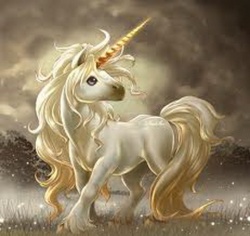Difference between revisions of "Unicorn"
(Created page with "thumb|250px| The qilin 麒麟, mostly translated as “unicorn”, is a fabulous beast in ancient China. It is described as possessing the body of a deer,...") |
|||
| Line 1: | Line 1: | ||
[[File:Unicorn.jpg|thumb|250px|]] | [[File:Unicorn.jpg|thumb|250px|]] | ||
| − | The qilin 麒麟, mostly translated as “unicorn”, is a fabulous beast in ancient China. It is described as possessing the | + | The qilin 麒麟, mostly translated as “unicorn”, is a fabulous beast in ancient China. It is described as possessing the [[Body]] of a deer, the tail of an ox and one horn. Qi 麒 is the male unicorn, and lin the female animal. Lin is also an often-used abbreviation for qilin. It is said that it represents humankindness (ren 仁) and appears if a ruler reigns in a benevolent manner that is approved by [[Heaven]]. The unicorn so is a sign for a ruler that there is peace and [[Happiness]] in his realm. The qilin itself uses its horn only for defense purposes, does not trample on small [[Animals]], and does not willfully harm any plants. |
| − | |||
| − | Source: Yuan Ke 袁珂 (ed. 1985). Zhongguo shenhua chuanshuo cidian 中國神話傳說詞典, p. 451. Shanghai: Shanghai cishu chubanshe. | + | Other auspicious Animals are phoenix (fenghuang 鳳凰), turtle (gui 龜) and dragon (long 龍). These together are called the "four spirits" (siling 四靈). |
| + | |||
| + | '''Source''': | ||
| + | :Yuan Ke 袁珂 (ed. 1985). Zhongguo shenhua chuanshuo cidian 中國神話傳說詞典, p. 451. Shanghai: Shanghai cishu chubanshe. | ||
{{R}} | {{R}} | ||
[http://www.chinaknowledge.de/History/Myth/personsqilin.html www.chinaknowledge.de] | [http://www.chinaknowledge.de/History/Myth/personsqilin.html www.chinaknowledge.de] | ||
| + | |||
| + | [[Category:Persons of the Age of Mythology, the Xia and the Shang Periods]] | ||
[[Category:Buddhist Terms]] | [[Category:Buddhist Terms]] | ||
[[Category:Chinese Mythology]] | [[Category:Chinese Mythology]] | ||
Revision as of 14:55, 8 May 2013
The qilin 麒麟, mostly translated as “unicorn”, is a fabulous beast in ancient China. It is described as possessing the Body of a deer, the tail of an ox and one horn. Qi 麒 is the male unicorn, and lin the female animal. Lin is also an often-used abbreviation for qilin. It is said that it represents humankindness (ren 仁) and appears if a ruler reigns in a benevolent manner that is approved by Heaven. The unicorn so is a sign for a ruler that there is peace and Happiness in his realm. The qilin itself uses its horn only for defense purposes, does not trample on small Animals, and does not willfully harm any plants.
Other auspicious Animals are phoenix (fenghuang 鳳凰), turtle (gui 龜) and dragon (long 龍). These together are called the "four spirits" (siling 四靈).
Source:
- Yuan Ke 袁珂 (ed. 1985). Zhongguo shenhua chuanshuo cidian 中國神話傳說詞典, p. 451. Shanghai: Shanghai cishu chubanshe.
